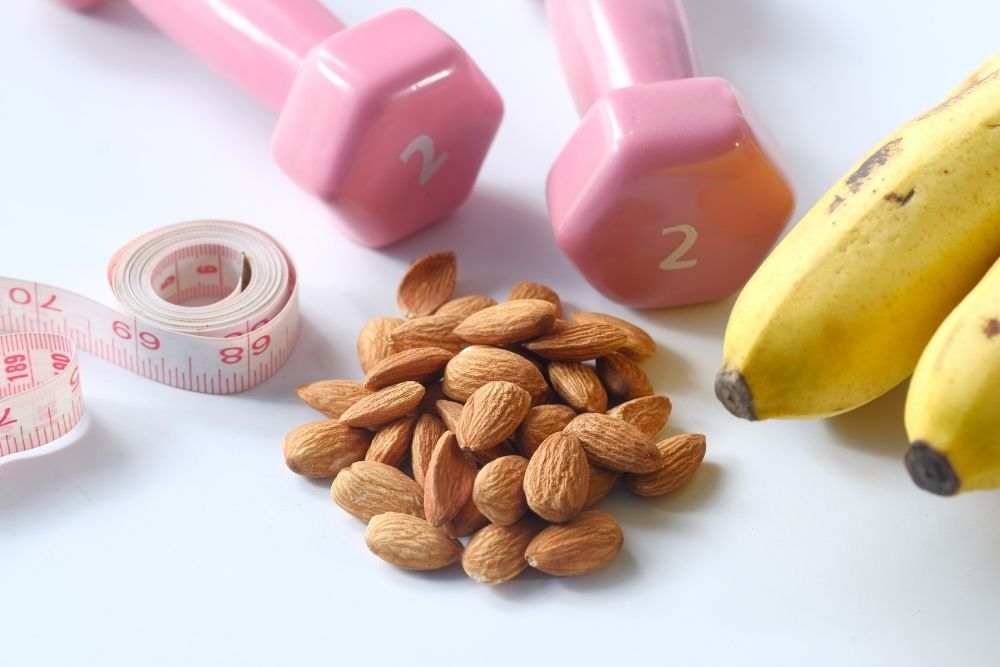When talking about an ideal diet for muscle gain, you must consideral several elements. For example: your metabolism, daily phisycal activity, prior muscle building experience, so on. Then you can choose a proper diet for bodybuilding.
Balanced diet for muscle gain
With so many muscle-building diets to choose from, it may be hard to decide which one is right for you. Whatever you decide to do, maintaining a good balance of macronutrients is the key to promoting general health, fat loss, and muscle building (Read: How to get strong muscle). We’ve gathered a few of the most popular muscle-building diets that can help you reach your goals.
Here are some of the most popular muscle-building diets:
80-10-10 Diet
This diet plan focuses more on how the food is processed in your body more than what they are, so you can easily follow this while still getting the right balance of macronutrients. Whole foods are those that are not processed. Essentially, if you look at the ingredient list and there’s only one thing on it, it’s a whole food.
If it’s got a bunch of things you can’t pronounce, it’s processed and potentially dangerous.
For this diet plan, you need to have:
- 80% of your daily food coming from whole foods you enjoy
- 10% of your daily food coming from whole foods you haven’t tried or don’t particularly enjoy
- 10% of your daily food coming from whatever you want
Split-Meals Diet
This diet is simple, and involves splitting up your meals throughout the day. The idea is that it helps keep your body fueled and energized throughout the day. It can also help keep you feeling full so you don’t run the risk of over-eating during your meal times, which can lead to fat gain. For this diet, simply split your normal meals up into 5 – 6 meals throughout the day plus a couple of snacks.
Intermittent Fasting Diet
There are a number of health benefits to intermittent fasting which is why many people are starting to participate in it. While there are different schedules you can use, the most common is the 16/8 plan in which you fast for 16 hours a day (typically from 9pm to 1pm the following day) and eat normally for 8 hours a day (from 1pm to 9pm).
Whatever diet seems right for you, I cannot stress the importance of finding the one that suits your lifestyle best. If you struggle finding the time to eat several times a day then maybe look at Intermittent Fasting. Above all else when deciding which diet is best is consistency. Being consistent is what will get you results when on a muscle building diet.
Now, which one is the the ideal diet for muscle gain?
All depends on your muscle building goals. But remember that you have to commit to the diet to choose.
Muscle building Nutrition
Part of your new muscle-building lifestyle involves changes in the food that you eat. Getting the right balance of macronutrients will help your body do what it needs to do in order to build muscle so you can reach your goals. For that reason, we’re going to detail the three macronutrients and let you know about how many of each you should be eating every day.
Before we get too much into diet, keep in mind that every body is different, and what works for one person may not work for another. That’s why these are just guidelines. We recommend that you track your food intake at the beginning of your journey and make changes as necessary until you’ve established the perfect balance for you.
Here are the three macronutrients:
Protein
This is the most important macronutrient for muscle building because it’s needed to build muscle. Protein is made up of amino acids, and it’s these that are used by the body to rebuild damaged muscles, among other processes in the body. If you want your body to build muscle quickly and effectively, you need to make sure that you’re getting enough protein in your diet.
For most people, 30% of your calories should be coming from protein every day. The best sources of protein include milk, meat, beans, seafood, and eggs. If you are worried about not getting enough protein from food, you may consider adding a protein supplement which can help you reach your daily protein goals.
Fat
There are several types of fat, and getting the healthy kinds will help you build muscle. Fat helps build muscle by aiding in the recovery process. It also aids in a number of processes in the
body that keep you healthy overall, including hormone production and heart health. As you stay healthy by getting plenty of healthy fats, you’ll be able to exercise more.
Fat should make up around 30% of your daily caloric intake. Focus on unsaturated fats and essential fatty acids which are both healthy. You can get these from avocados, fish, nuts, and seeds. Saturated and trans fats which come from vegetable oil, margarine, and animals, should be avoided at all costs as these will only do damage to your body.
Carbohydrates
Despite this macronutrient getting a bad rap recently, carbohydrates are necessary for your health and an important part of body building. These are where you get your energy from, which you need to get in your workouts. While simple carbohydrates like sugars are not good for you and will promote fat storage, complex carbs will give you the energy you need and actually encourages fat burning.
The remaining 40% of your daily caloric intake should come from carbohydrates. These will come from things like whole wheat bread and pasta, green vegetables, starchy vegetables, and beans. Most of these foods also contain a number of other essential vitamins and minerals that will help you maintain good health.
Now that you have a general idea of what an ideal diet for muscle gain should be. We’ve also covered the foundational nutrition guidelines to building muscle. For more related information you can check our other articles in the fitness section.

David es escritor y profesor graduado. Escribe para diferentes sitios web. Con más de 7 años de experiencia en escritura y educación, David ha combinado su experiencia en la enseñanza con su pasión por el bienestar físico y mental. Investiga y escribe para brindarle información valiosa sobre pérdida de peso, nutrición, fitness, comunidad, sociedad y más.




